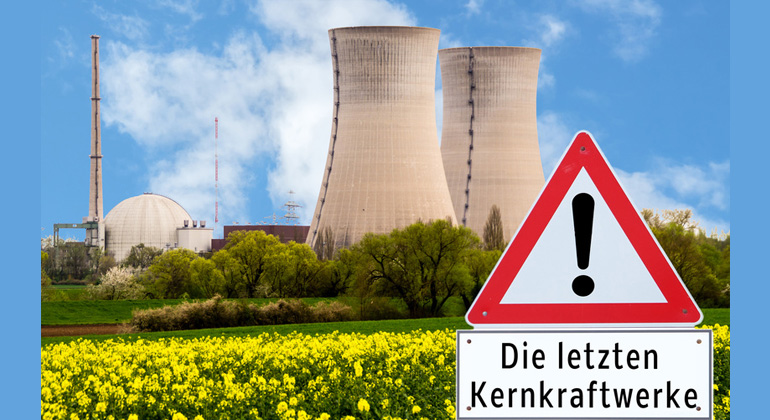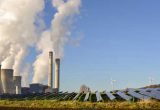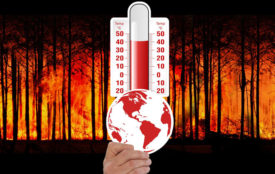The German ghost discussion
At least we have to talk about extending the operating lives of the three German nuclear power plants that will continue to run until the end of the year,” say parts of the Green Party and the SPD.
The FDP, CDU/CSU and, of course, the AFD are even advocating longer operating times in principle, even for the reoperation of nuclear power plants that have already been shut down.
Until Chernobyl in 1986, I was also a supporter of nuclear energy. Afterwards, I learned that we have safer, cheaper and more environmentally friendly alternatives that we can use as gifts from nature.
In 2022, we can produce solar power in Germany for three to four cents per kilowatt hour. Meanwhile, electricity from the wall socket costs about ten times that. Nothing is as expensive as nuclear power, for whose waste disposal there is not a single final repository in the entire world. But longer operating times naturally mean even more nuclear waste. This is an unsolvable problem that we are leaving to our children and grandchildren, like so many other problems.
But the changeover will still take time, according to the friends of nuclear power, and they recommend longer nuclear power plant transition periods as a lesser evil to Putin’s gas war and longer periods of operation for harmful coal-fired power. So from the slogan “Nuclear power?- no thanks” to “Nuclear power? – yes please”?
Caveat: One of the world’s most renowned solar researchers and longtime head of the Fraunhofer Institute for Solar Energy Systems in Freiburg, Professor Eicke Weber, said on my future show on “Transparenz TV”: “The switch to 100 percent renewable electricity is possible in Germany by 2030.” So you just have to want it. Eicke Weber also sees nuclear power plants as part of the problem rather than part of the solution.
The ghost discussion about “coal or nuclear power”
I think the current discussion “coal or nuclear power?” is a ghost discussion. Even the nuclear power plant operators don’t want longer operating times because it will be too expensive and they have long since prepared themselves for the final phase-out. Every nuclear power plant will remain a source of danger after Dec. 31, 2022, because it contains a “residual risk.” “Residual nuclear risk is that risk that can give us the ‘rest’ any day.” That’s what the head of the Chernobyl cleanup, Professor Vladimir Chernousenko, previously an ardent supporter of nuclear energy, told me in a television interview. He was contaminated by the accident and subsequently died of cancer.
In a densely populated country like Germany, there can be no compromise on safety. The safety of the population from a nuclear accident outweighs the safety of the power supply.
Environmental associations are not the only ones warning against longer operating times. So does the head of the Federal Office for the Safety of Nuclear Waste Disposal, Wolfram König. He points out that no more safety tests have been carried out at the three nuclear power plants still in operation since 2013, and that each day of continued operation produces more nuclear waste for which there will be no disposal worthy of the name for decades to come.
Moreover, Germany does not have an electricity gap, but a heat gap that can hardly be closed with nuclear power. Mareike Rüffer, head of the Nuclear Safety Department at the Federal Office, also warns against an increase in nuclear waste in Germany as a result of longer operating times.
Nuclear climate protection?
It’s smarter to go for the complete changeover right away. For 30 years, we have been relying on the fusion reactor sun on the roof of our house in Baden-Baden, which supplies us with electricity and, in part, heat from a safe distance of about 150 million kilometers – cheaply, reliably, safely and via storage. It is also still enough for free driving with an e-car. The nuclear reactor sun sends us about 15,000 times more energy than the entire human race consumes today. There is no energy problem by nature, there is only wrong energy behavior and pre-dated energy policy. Unfortunately, in Germany in 2022, 90 percent of roofs will still be standing around with no energy at all.
But the French continue to operate nuclear power plants. Unfortunately true. The only problem is that two-thirds of French nuclear power plants are currently shut down for safety reasons and because of the heatwave summer. When it’s hot, there’s no cooling water for the reactors. That’s why France currently has to import a lot of electricity from Germany. Our western neighbors operate nuclear power plants because they need their waste material to build their atomic bombs. Thank God, we don’t have this terrible constraint in Germany.
A nuclear power plant does not emit CO2
But the core problem of nuclear energy is nuclear contamination for tens of thousands of years or even longer. The U.S. nuclear physicist Richard L. Garwin before the Nuclear Control Institute in Washington: “An average nuclear power plant produces as much radioactivity daily as four Hiroshima atomic bombs.” Daily. For the three German nuclear power plants that have been operating even longer, that would mean as much radioactivity as twelve Hiroshima atomic bombs. Daily.
Saving energy, energy efficiency and a rapid switch to renewables is the solution. Even biomass generated more electricity in this country in the first half of 2022 than nuclear energy. The sun and the wind anyway. The sun alone sends us 15,000 times more energy than all of humanity consumes today. There is no energy problem by nature.
The problem is only wrong human energy behavior. For me, every nuclear power plant is an attack on creation.








